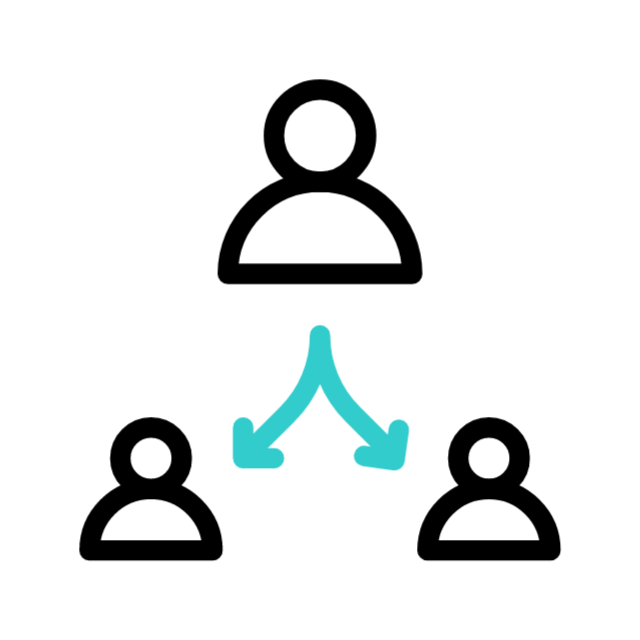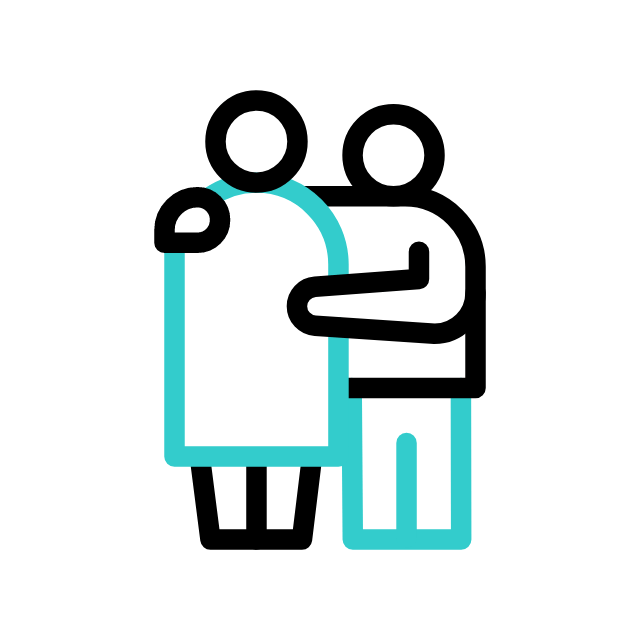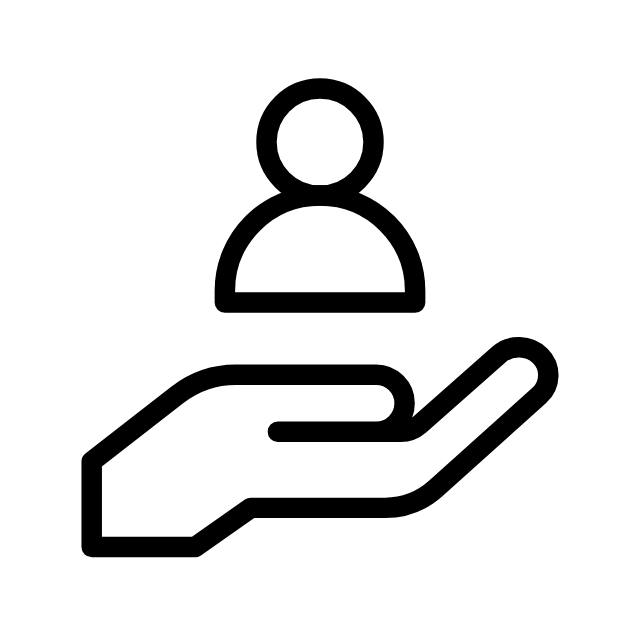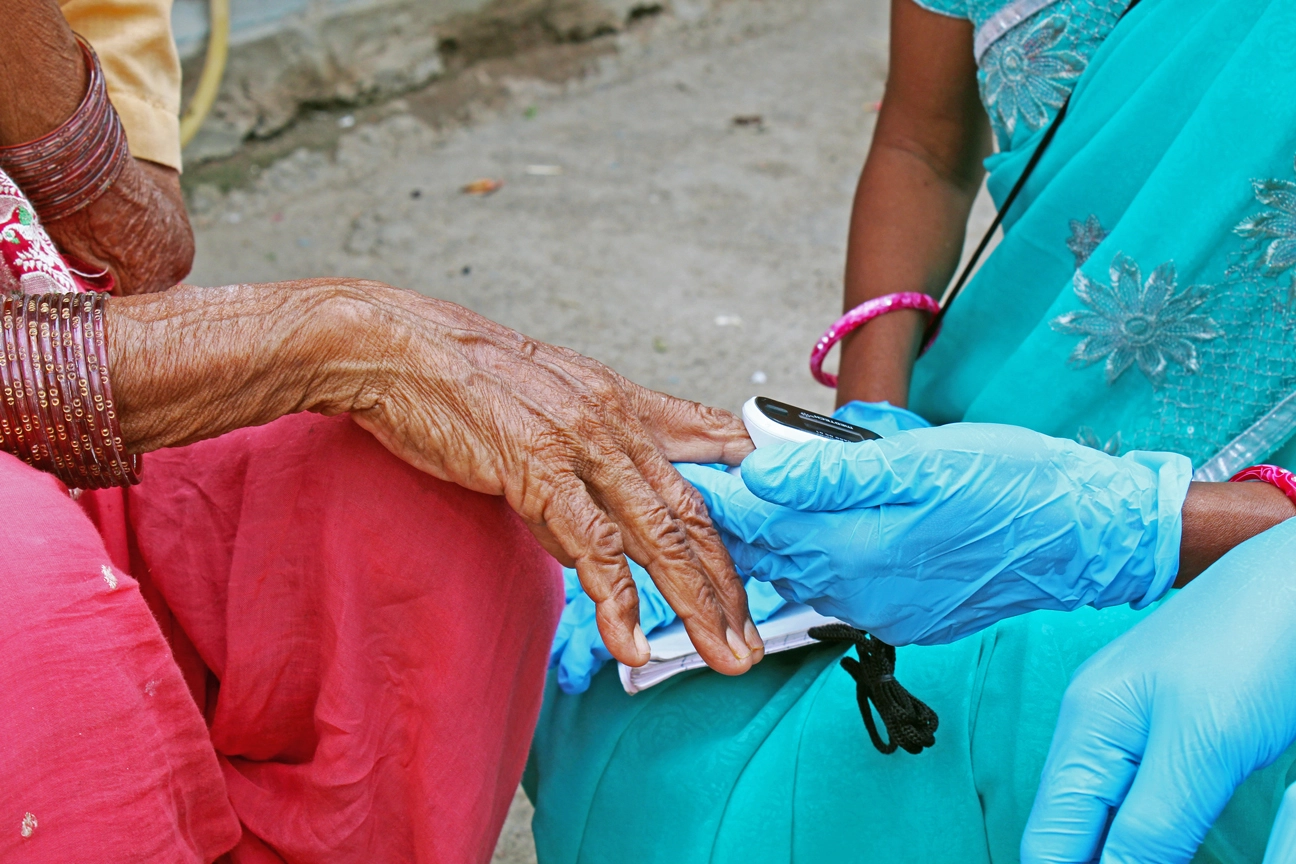Community Based Mechanism
Objectives of Community Based Projects

Resilient Social Support Structure
Creating social support structure by establishing relationship with the elderlies, their families and community as a whole.
Going for Home Visits
Registering on Saving Life Checklist
Creating Individual Care Plans
Counselling sessions
Community meetings for sensitization

Comprehensive Community-Based Care
Establishing community based comprehensive service delivery model for basic care of elderlies and activating the public system to provide comprehensive services to the elderlies.
Providing home health check-ups, physiotherapy, virtual OPD
Providing assistive devices, medicines, basic consumables
Referrals for health, violence, legal aid, mental wellbeing etc.

Enhancing Inclusion via Program Linkages
Building linkages with different schemes and programs to enhance inclusion
Social security entitlements and schemes
Linkages with all schemes and programs
Support for all documentation for each scheme
Improving
Quality of Life
Our Individual Care Plan focuses on different factors related to these six domains.
Physical Health
Home based health-check-ups
Disbursement of medicines and supplements
Virtual OPDs
Referral to higher facilities for treatment
Psychological State
One on one Counselling with the elderly
Following mhGAP tool to understand their mental wellbeing
Talking and sensitizing the family members
Level Of Independence
Providing assistive devices to the elderly
Providing basic necessities such as diapers, ration, etc.
Providing multi-vitamins to improve physical strength to move around
Social Relationships
Community level meetings
Encouraging youth engagement
Creating volunteers Inter-generational bonding
Putting up IEC and BCC messages in the community to create an understanding of the elderly’s need
Environmental Features
House repairs for improving living conditions and providing ease and comfort
Home visits, for building enabling environment
Counselling of the elderly and their family members
Providing assistive devices to reduce their dependence and improve freedom
Spritual Concerns
Coming together as a group and sharing their beliefs
Singing, Lunching and engaging with each other
Geriatric Units
What is a Geriatric Unit?
Geriatric Units were operationalized as exclusive centers for the elderly, which would understand their physical and mental health conditions and offer them customized care. The units comprise of a spacious room with various physiotherapy equipment, cots, and screens for privacy. Students from physiotherapy units provide individualised and focused treatment at no cost to the elderly.
-
JAN 2019Launch of first community based project in Pune City
-
MARCH 2020Expansion of community- based project due to COVID-19 - 65 slums till dateon.
-
APRIL 2020Official letter from Pune Municipal Commissioner to expand intervention to all slums in the city
-
DECEMBER 2020Identification of Dalvi Hospital - the first geriatric unit to be established
-
MARCH 2021Grant secured from SBI Capitals for equipment, ambulance, and 1-year operational cost
-
JULY 13, 2021Inauguration of Dalvi Hospital Geriatric Unit
-
JULY 27, 2021Initiation of physiotherapy services for the elderly in collaboration with physiotherapy institutes in Pune city
-
APRIL 2022Opening Of Bhopal Geriatric Unit
-
MAY 2022Inauguration of Sonawane Hospital Geriatric Unit
-
AUGUST 2022Formal MOU with Pune Municipal Corporation for the establishment of 5 geriatric units in the city
-
MAY 2023Opening of Geriatric Unit in Gwalior
COVID-19 Response
Humanitarian Response during the pandemic
We realized that the older adults are at greater risk of illness and death during many types of emergencies including the Covid-19 pandemic. We also started witnessing that few specific conditions of elderlies, such as impaired mobility, diminished sensory awareness, multiple chronic illnesses, and social and economic limitations reduced their ability to adapt during situations like ‘Lock-Down’. Within no time, special efforts were initiated by the team. The most promising aspect that came handy during this situation was our already existing process of filling ‘Saving Life Checklist (SLC)’ for each elderly, which gave us complete understanding of their health, especially chronic illnesses.
We were compelled to think beyond the day to day, routine situations in life, to carve out a comprehensive, community-based emergency response plan. This process in our Pune community-based project entailed:
Creating first responders/ peers of elderly through our community workers that reside in Slums.
Training these peers on meeting the unique needs of vulnerable older people
Creating back-up service providers for telehealth (both counselling and consultations)
Creating a system for listing and providing basic supplies: raw ration, hygiene products for standard precaution, medicines, multivitamins, adult-diapers and other life sustaining items
And rigorously implementing the individual care plan (ICP) developed on the basis of the Saving Life Checklist (SLC)

Overall, our Covid response work focused on:
Curbing misinformation and rumours surrounding vaccines with a view to curb vaccine hesitancy amongst the elderly & their family
Spreading awareness about the importance of Covid Appropriate Behaviors, and
Ensuring the alternative of home treatment of COVID positive cases as much as possible to reduce load on stressed public health care system
Essential medicines for post COVID & post vaccination effects wherever applicable for home recovery
Supply of appropriate masks & sanitizers wherever needed
Ensuring vaccination of elderlies through regular registration, escorting for vaccination and providing post-vaccination support
Tele-consultation through virtual OPDs
Creation & capacity building of local community workers to act as members of COVID Discipline Committee at the locality level (ward/ slum) level.
We are there for you
Vriddha Mitra +
Adjusting to living alone brings in a great loneliness for elderly men and women, and often results from the inability to get out of the house to see others, because of reduced mobility or restrictions associated with transport problems. Within the household too, there are many things that appear to be difficult to them, especially when it comes to situations where they want to partake in their routine or complete their daily tasks by themselves. These may be simplest of the tasks, like changing a bulb, replacing a gas cylinder, stacking and disposing old newspapers, or cutting the toe nails etc.
Elderly care is a universal concept. The basic needs for physical care, safety, emotional, psychological and social support, as well as various services associated with the fulfilling of these needs, are vital for the elderly regardless of their lifestyle and the economic strata they belong to.
In accordance with the same, we spearheaded the Vriddha Mitra+ program to be able to reach the elderly living in residential societies. With a dedicated workforce of trained professionals, the VM+ service is equipped to provide services ranging from companionship to patient care.
Training Our Future
Vriddha Mitra Course
Before recruiting the community officers for the Community Based Project as well as the residential society-based Vriddha Mitra+ program, we train them and build their capacity for caregiving. Before commencing their responsibilities as caregivers for the elderly, we ensure that each Community Officer engaged with Vriddha Mitra undergoes comprehensive training to ensure they are capable of delivering well-informed and compassionate care. In pursuit of this commitment, we have established the 'Vriddha Mitra Course,' an intensive 3-month training program meticulously designed to equip its participants with the skills and knowledge necessary to provide exceptional care. This training program consists of 6 modules, delivered through an amalgamation of classroom sessions and field training.
Till 2022, this course was informally being provided within the premises of SCHOOL. However, from 2022 onwards, SCHOOL entered into a partnership with Lighthouse Communities Foundation wherein the participants also undergo an additional 1-month training called a ‘Foundation Course’. The Foundation Course comprises of English Speaking, Computer Skills, Public Speaking Skills, Basic Mental Skills, Soft Skills, etc. After the completion of the Foundation Course, they graduate onto the Vriddha Mitra Course. This initiative was launched with the primary objective of empowering enthusiastic individuals with the requisite expertise to effectively serve the elderly community on a daily basis. Participants are equipped not only to address the immediate needs of the elderly but also to adeptly evaluate their unique challenges and provide tailored solutions. The course curriculum is thoughtfully structured, encompassing modules that delve into healthcare, non-communicable diseases, service provision, and other pertinent domains. These are delivered in-person as well as virtually by experts in the field of healthcare, medicine, and social work.
The curriculum consists of the following modules:
• Module 1: Who is an elderly
• Module 2: Physical and mental health (challenges, diseases and solutions)
• Module 3: Services of all types and details of delivering the same
• Module 4: Code of Conduct
• Module 5: Roles and Responsibilities
• Module 6: Monitoring and feedback mechanism
Until August 2023, the Vriddha Mitra Course has enrolled and provided training to around 150 individuals, capacitating them as caregivers.
